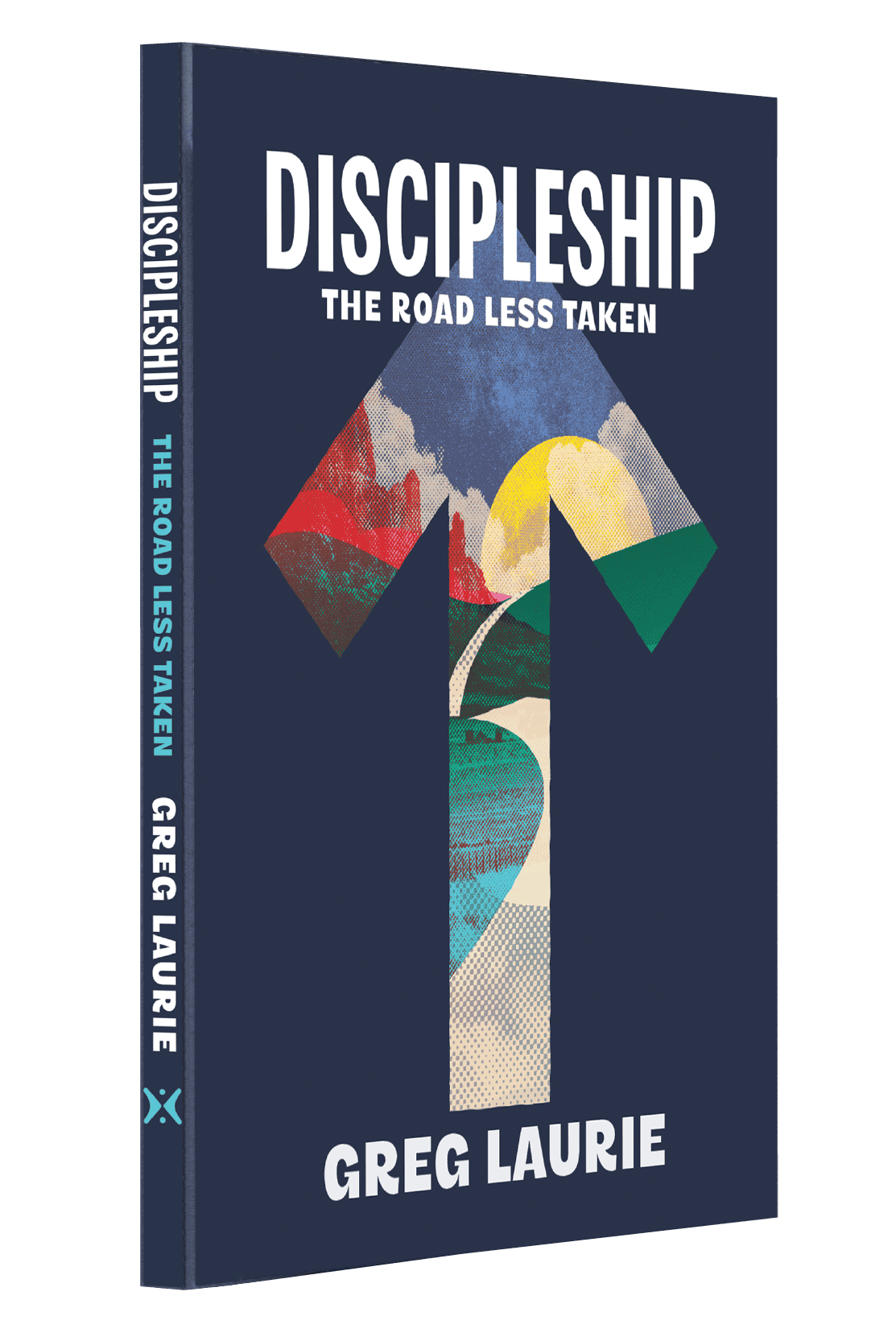This may come as a shock to some, but Christmas is not about love, peace, harmony, and sipping hot cocoa with family around a crackling fire. Christmas is actually about conflict. It always has been—and it always will be.
Christmas in A New Light
In the New Testament book of Revelation, we find a passage that unexpectedly deals with the subject of Christmas. In this passage, a woman is being pursued by a powerful dragon who seeks her death. As she prepares to give birth, the dragon hovers over her, wanting to destroy the child. The woman is a picture of Israel, the child is Jesus Christ, and the dragon is Satan.
That is Christmas from a heavenly perspective. And it gives us the big picture of what was happening when God sent his Son into the world. Satan opposed it, and we can see how this is still in play today.
Hostility toward Christmas seems to escalate a little more every year. More nativity scenes are being removed from the public place, and Christmas carols are not allowed in some places. Meanwhile, atheists put up billboards attacking the Christian faith. And many would rather say “Happy Holidays” than utter the word “Christmas.”
These are all symptoms of the conflict of Christmas.
As I’ve often said, the most intolerant people are those who talk the most about tolerance. The fact of the matter is that Christians are, for the most part, very tolerant. Every day I see or hear things on television, the radio, or even billboards that offend me.
But I don’t burn down the billboards or try to get people fired from the television or radio shows who say things that I don’t like. I tolerate it. And I expect the same from others, because we still live in a country where we can express our views freely.
Although I don’t agree with certain views, I do support someone’s right to state his or her views. And I expect the same respect for my point of view. That is one of the beautiful things about our country.
However, there are people in our nation today who don’t want us to merely tolerate their views; they want us to accept them—and, even more so, endorse them. This can’t happen, because as Christians, we stand on the Scriptures.
Jesus did not come to bring a mind-numbing peace on earth, devoid of truth. The message to the shepherds who kept watch over their flocks on the night of Christ’s birth was, “‘Glory to God in the highest, and on earth peace, goodwill toward men!'” (Luke 2:14 NKJV).
Another translation puts it this way: “Glory to God in highest heaven, and peace on earth to those with whom God is pleased” (NLT). The only way we will have peace on earth is when we are pleasing to God.
The Battle We’re Facing
Jesus made a rather provocative statement in Luke 12:51: “‘Do you suppose that I came to give peace on earth? I tell you, not at all, but rather division'” (NKJV). This is the division between light and darkness, righteousness and unrighteousness, good and evil, and yes, right and wrong.
What we are seeing played out in our culture is a battle. It is a battle between the God of the Bible—the true and living God—and all contenders.
This battle is nothing new. It goes all the way back to the Garden of Eden. After Satan tempted Adam and Eve and they sinned, God said to him, “‘And I will cause hostility between you and the woman, and between your offspring and her offspring. He will strike your head, and you will strike his heel'” (Genesis 3:15 NLT).
Red is the color of Christmas. But that isn’t because it’s the color of Santa’s suit, or our favorite decorations, or gift wrap. No, red is the color of Christmas because of the blood of Jesus Christ that would be shed. The cradle pointed to the cross. The Incarnation was for the Atonement. The birth of Jesus was for the death of Jesus.
The Scriptures prophesied that the Messiah would be born in Bethlehem. Matthew’s Gospel tells us, “Jesus was born in Bethlehem in Judea, during the reign of King Herod. About that time some wise men from eastern lands arrived in Jerusalem, asking, ‘Where is the newborn king of the Jews? We saw his star as it rose, and we have come to worship him.’ King Herod was deeply disturbed when he heard this, as was everyone in Jerusalem” (Matthew 2:1–3 NLT).
The visit of the wise men introduces us to one of the worst villains in the Bible: King Herod. History calls him Herod the Great. He was raised in a politically well-connected family, destined for a life of hardball and power brokering.
By age 25 he was named the governor of Galilee, and the Romans hoped that he could control the Jews under his authority. In 40 B.C., the Senate gave him the title King of the Jews, of which he was very proud.
Herod was addicted to power and known for his cruelty. Anyone whom he perceived as a threat would be quickly eliminated. Human life meant nothing to him.
So, when the wise men came to town asking for the King of the Jews, it created quite a stir. There wasn’t a worse thing someone could have said to King Herod. And when he realized the wise men wouldn’t be reporting back to him, he was angry. That’s when he gave the unthinkable command to put to death all the boys under the age of 2 in Bethlehem.
Herod, the man who tried to stop Christmas, came to complete ruin. In the final year of his life, he was in so much pain from disease that he screamed through the night. He ended up on the ash heap of history like so many other dictators who came before and after him.
People who live wicked lives eventually will reap what they sow. All who blaspheme God, fight with God, or try to stop the work of God eventually will fail. But God’s Word ultimately will prevail. And, one day, everyone will bow before Jesus Christ, the King of kings and Lord of lords.
—
Read: What God Did in 2022 and What’s Next
Learn more about Pastor Greg Laurie
Subscribe to the Greg Laurie Podcast
Originally published at WND.com

Did you pray with Pastor Greg?
To help you get started, we would love to send you a free Bible and other resources to help you grow in your faith.
Get Resources
In thanks for your gift . . .
Following Jesus is more than a one-time decision—it’s a daily walk. In this book, Greg Laurie explores the true meaning of discipleship and how you can experience a life of purpose, growth, and joy. Get your copy of Discipleship: The Road Less Taken with your donation today.
Make Your Gift



